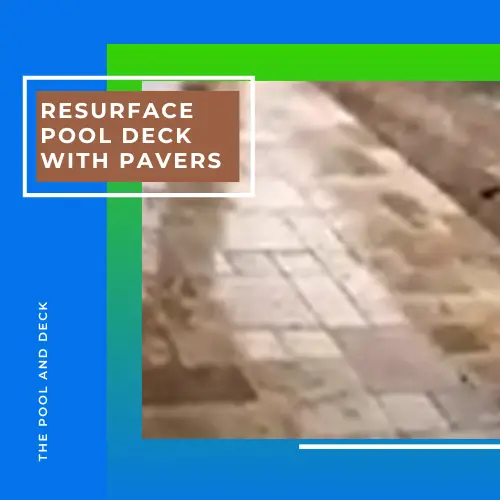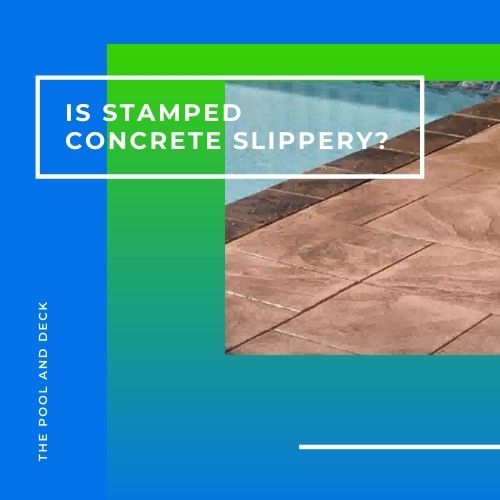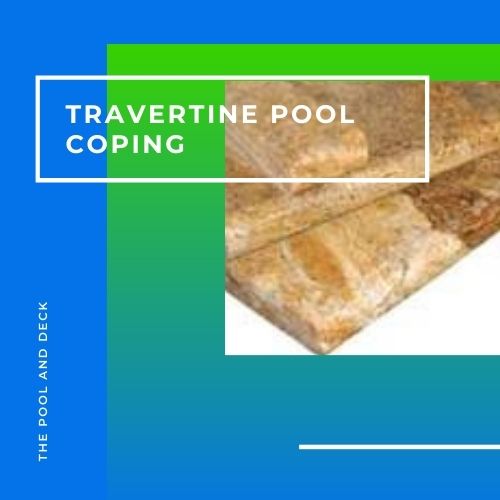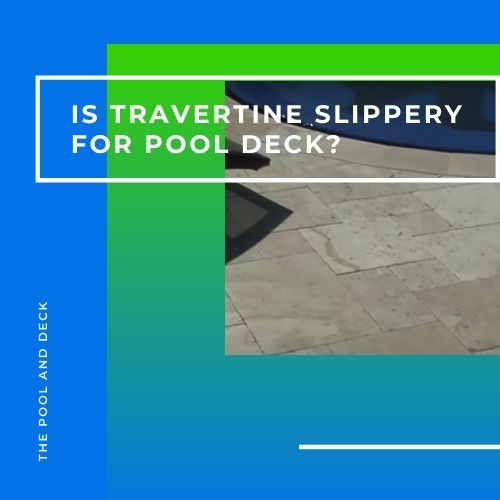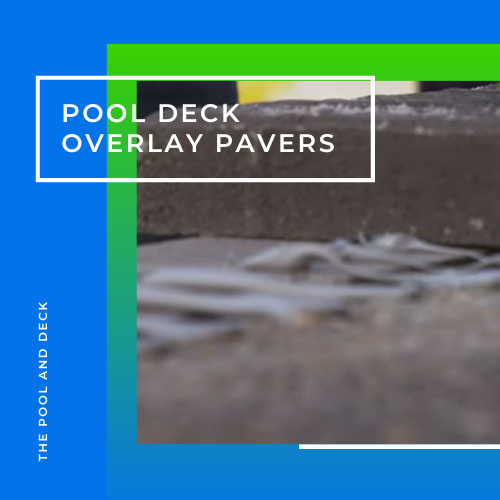Marble Too Slippery For Pool Deck? (Important Facts You Need To Know!)
As an Amazon Associate, I earn from qualifying purchases.
Table of Contents
Is Marble Too Slippery for a Pool Deck?
Do you have a home that is so luxurious it could be featured in a magazine? Naturally you want to build a pool and a deck to match. When it comes to grandeur & opulence, few natural stones can top marble. But is marble too slippery for a pool deck?
Smooth marble is extremely slippery when wet and should not be used for a pool deck. If you really want the regal beauty of marble on outdoor decking, restrict its use to areas that are unlikely to get wet.
Pool surrounds are meant to be wet. Using smooth marble in the immediate vicinity of the pool would make the pool coping and deck extremely hazardous. Do not take that risk!
To keep smooth marble decking safe from slips and falls you must keep it absolutely dry at all times . Alternatively, the marble paver or tile should not be polished. Use coarse textured marble.
I am not saying that you can not use marble decking your pool at all. However, you have to be mindful of the risks involved and use it extremely judiciously.
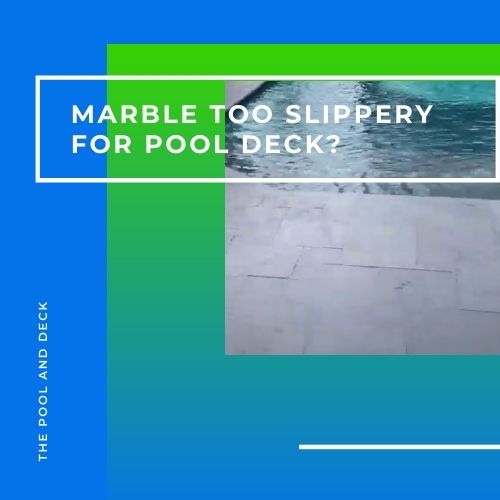
Before you decide to go ahead with your dream marble pool deck, it is a good idea to do some research. Learn as much as possible about marble, marble pavers & tiles and ways to protect and make marble less slippery for a pool deck.
This post should be a good start. I give you the important facts that you need to know about marble in the context of pool decks.
Once you have read the post, do visit a marble showroom nearby. You must see and feel the various options available to decide the best one for your project.
So let me start with the basics.
What Is Marble and How Is It Formed?
Believe it or not, marble started off as limestone. Limestone buried deep into the earth, under severe heat & pressure, changed from a sedimentary rock to a metamorphic rock to become marble.
The sedimentary layers of calcite in limestone are metamorphosed as crystalline calcite in marble. The crystals give marble a unique translucence. Marble can be carved and polished quite easily. No wonder sculptors love to work with marble to create their works of art.
The Taj Mahal, a monument to love, a UNESCO heritage site and one of the winners of “New 7 Wonders of the World” is entirely clad in Makrana marble.
Italy is considered as the home to the finest marble quality in the world. Marble quarries are found in many countries including the US. The demand for dimensional marble, such as pavers, tiles, counter tops, etc. is so high in the US that it needs to import most of it.
Should You Seal Outdoor Marble Pavers?
Sedimentary stones such as travertine or limestone have high porosity. Metamorphic stones such as marble or granite are less porous. But marble is still porous compared to granite and quartz.
It is not essential to seal marble pavers. Marble is very durable and quite resistant to rain and other adverse weather conditions. However, marble is not so resistant to acids, even mild acids such as vinegar or orange juice. Marble can discolor and stain quite easily.
Sealer coats, applied on marble pavers for a pool deck, will prevent it from wear & tear and the occasional spills. Marble pavers & tiles don’t come cheap. Why not spend a bit more and seal them?
You need to know that there are two main types of natural stone sealers.
Impregnating Stone Sealers:
Impregnating Stone Sealers are purely functional. They penetrate into the pores of the paver or tile, solidify and block them. Liquids, such as water or acids, can not enter the pores.
However impregnating sealers do not form a film on the surface. So a marble paver sealed with an impregnating sealer could still get stained from, say, red wine!
Topical Stone Sealers:
Topical Stone Sealers penetrate a bit, but mostly form a glossy, protective film on the natural stone surface. They protect the paver from stains, discoloration and normal wear & tear.
For best results, use an impregnating sealer on the marble paver followed by a coat or two of topical sealer.
Topical sealers will make polished marble slippery. So, make sure you add a non-slip additive to the topical sealer.
Recommended Products
There are several popular brands such as SureCrete’s SureGrip, H&C SharkGrip or Matcrete’s Rhino Grip.
Below are the sealers I recommend. Click on the link to order from Amazon.
Impregnating Sealer
A good quality impregnating sealer will last for 10 years or more. Two or more coats are recommended.
Foundation Armor SX5000 Water Based Silane Siloxane Penetrating Sealer
Topical Sealer
Topical sealers do not last that long as they protect by forming a film on the surface. The film is constantly depleted due to abrasion, weathering and sun’s UV rays. Two coats of topical sealer should be applied every 2-3 years.
Foundation Armor AR350 Solvent Based Acrylic Wet Look Sealer
How Do I Make My Marble Pool Deck Less Slippery?
Marble is beautiful and luxurious. Unfortunately, smooth marble is extremely slippery, when wet. If marble was not so slippery, it would be an excellent choice for a pool deck.
If you must use marble on your pool deck, use caution and judgment. Here are some tips on how you can make marble pavers or tiles, not too slippery for a pool deck.
- Avoid using smooth polished marble in close proximity to the pool. The “wet foot” traffic is high there.
- Do not seal smooth, polished marble. It is not essential. In any case keep it dry by restricting its use to covered areas or those reserved for lounging and alfresco dining.
- If you must seal, use both penetrating and topical sealer. Make sure to add a non-slip additive to the topical sealer.
- Use textured marble pavers. Sandblasted, tumbled or leather finish marble pavers bring an aged, weathered look, which has its own beauty & charm.
Thank you very much for reading the post. I do hope you found it informative and helpful.


